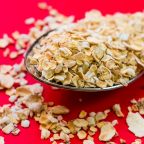
Top 10 Health Benefits of using a Natural Sweetener
Sweetness in the food improves its taste severalfold. For this reason, sweeteners, be they natural or artificial, have now become an integral part of everyone’s diet and food consumption. But the excessive intake of any particular food item can cause lifestyle disorders. Sweeteners are no different in this regard and can raise serious health conditions such as obesity, diabetes, heart diseases, and in some severe cases, even cancer.
Refined sugar or sucrose is the most commonly used sweetening agent by people around the world. Consumption of sugar as an added component while cooking food can result in the surge of glucose levels in the blood. This happens due to its relatively quick absorption into our blood. This surge in blood glucose levels can be a threat to our body’s metabolism to break down this extra glucose. It is thus, time for us to switch to healthier alternatives of sugar with less intense consequences. Nothing fits this job better than Natural Sweetener.
What is a Natural Sweetener?
Natural sweeteners are healthier and safer alternatives to sugar, obtained from natural sources such as plants, fruits, and berries. These can be carbohydrates extracted from roots, nuts, seeds, and trees. In comparison to nonnutritive sweeteners, natural sweeteners contain calories, nutrients and also have a low glycemic index as compared to sugar. This means that natural sweeteners have a lower potential of increasing blood glucose levels than refined sugar or sucrose.
The nutrient content in natural sweeteners is very high. They contain antioxidants, calcium, iron, magnesium, phosphorus, B vitamins, also zinc, and potassium. There are some types of natural sweeteners that are 250 to 300 times sweeter than table sugar but do not add any extra calories or carbohydrates to the food. In conclusion, the presence of these other chemicals and nutrients that help to lower the chances of developing chronic diseases is the main reason why you should choose natural sweeteners over refined sugar or artificial sweeteners.
Natural Sweetener vs Artificial Sweeteners:
Substitutes of sugar that are artificially synthesized but taste similar to sugar, are known as Artificial Sweeteners. While consumption of Natural Sweeteners is associated with several important health benefits, artificial sweeteners can have detrimental health effects. If there is an excess intake of Artificial sweeteners, the risk of contracting health hazards such as dementia, macular degeneration, tooth decay, and cardiovascular diseases increases by several folds.
Some of these artificial sweeteners are also forbidden in few countries because of their high carcinogenic properties. Studies conducted on the health implications of these sweeteners have demonstrated that their use can lead to increased male infertility, lowering of sperm count, excessive weight gain, and birth defects. Few examples of artificial sweeteners are Aspartame, Neotame, Saccharin, Sucralose, and Acesulfame potassium. Artificial sweeteners may be cheaper than natural sweeteners but when it comes to evaluating the hazardous health conditions that may arise, it is always a safer option to go for natural sweeteners and invest in a healthy lifestyle.
Top 10 Natural Sweeteners and their respective health benefits:
-
HONEY: Raw honey is a sweet and highly viscous liquid prepared by honey bees using nectar from flowers. The fructose present in honey helps in boosting insulin production that breaks down glucose in the blood. Honey is well known as a food substance that regulates our appetite and also controls our body weight.
-
SUGAR ALCOHOLS: These are digestible carbohydrates found naturally in fruits, mushrooms, and vegetables. These are good for diabetic patients as they have a low glycemic index. Along with this, certain sugar alcohols do not get fermented easily by the bacteria present in our mouths and thus prevents the risk of dental cavities.
-
STEVIA: Stevia is a strong sweetener extracted from a perennial shrub called Stevia rebaudiana Bertoni. There is a presence of several medical constituents in Stevia which are proven to have very corrective action towards health problems such as high blood pressure. Inflammation, tumor, and high blood glucose levels. Stevia is said to have zero calories and is an impeccable alternative to sugar.
-
DATES: These have been in use for generations as a source of natural sweeteners. These are rich in proteins, fibers, natural sugars, vitamins, and minerals. These have medium to low glycemic index and are fit for the consumption of diabetic people, in regulated amounts. Dates have been proven to help cure several heart-related problems.
-
FRUIT PULPS/ JAMS: Fruit pulps and jams extracted from real fruit purees, dried fruit, etc. can be used as alternatives to table sugar in most delicacies. These are composed of a combination of fructose, sucrose, and glucose. Fruits such as Monk Fruit or Luo Han Guo have a very high intensity of sweetness present in them which is safe for consumption.
-
PALM SUGAR/BROWN COCONUT: These are sugar alternatives extracted from palm plants, coconut, or siwalan. There is the presence of a chemical substance called Inulin, in these sweeteners that slows the absorption of glucose in the body.
-
LICORICE: Licorice is popularly used in the production of candies and drinks. The roots of the plant this is derived from, Glycyrrhiza glabra is used for manufacturing several herbal medicines due to its innate pharmacological characteristics. It is healthier than sucrose while being 50 to 100 times sweeter than it.
-
MAPLE SYRUP: Obtained from the sap of the Maple tree, Maple syrup is a famous sweetening agent. Maple syrup contains strong antioxidant molecules known as polyphenols that have a curative effect on certain issues faced by diabetic people.
-
TAGATOSE: This is a form of natural sweetener found in minute quantities in milk. The calorie content in this sweetener is very less as compared to sucrose but the level of sweetness remains the same. It can be added to low-calorie diets for diabetic patients.
-
SWEET PROTEINS: These are naturally occurring proteins that are now being extensively used as an alternative to artificial sweeteners. An example of this kind of protein is Thaumatin, which is extracted from a fruit. These don’t increase the caloric value of food.
Remind yourself of these natural sweeteners the next time you use refined sugar or artificial sweeteners in your food. Switch to healthier and safer alternatives and ensure that you and your family overcome, avoid, and defeat each one of those crippling health hazards.














